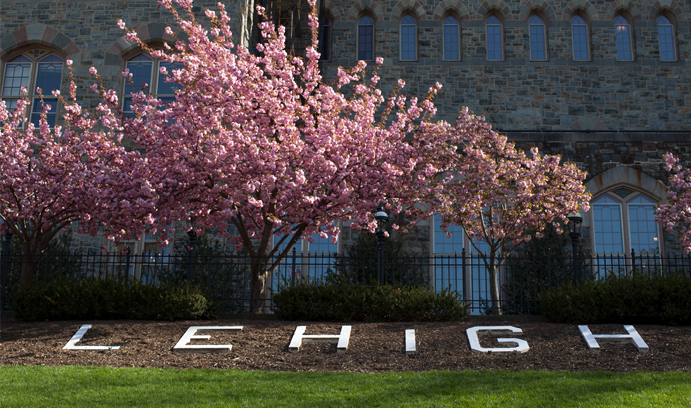Students, faculty and staff discuss diversity and campus climate during the February meeting of Lehigh’s Board of Trustees

The university’s governing board affirmed commitment to creating a more welcoming and inclusive campus climate.
The recent meeting of Lehigh's Board of Trustees was devoted to the critical importance of campus climate and issues of diversity and inclusion. Mindful of the issues and concerns articulated by students, faculty and staff, the University's governing board reaffirmed its commitment in a resolution passed by trustees.
Students, faculty, staff and trustees spent considerable time discussing the climate at the university, as well as issues that included the student experiences on campus, the role of the Greek system in social life, current progress, options that could make their work better, and the need for a continuing and sustained effort that is supported at the highest levels.
At the conclusion of the two-day meeting, the trustees formally resolved to affirm the work of the university’s administration and the Council for Equity and Community (CEC), and committed to “promote and secure mutual understanding, respect for individuality and differences, and unity in pursuit of the University’s educational mission and to ensure that the University reflects the Principles of Our Equitable Community.”
Brad Eric Scheler, chair of the Board of Trustees, said: There is and there can be nothing more integral to the educational mission and the intellectual and social vitality of Lehigh University than ensuring now and always that ours is an inclusive community and that our campus climate is wholly consistent with The Principles of Our Equitable Community. Together, we will and we must achieve these goals and objectives. To do so will require tireless and determined effort by our students, faculty, administrators, staff and alumni. For each and for all of us, doing so is and will be mandatory.
The trustee meeting organization was supported by Dr. Thomas Griggs and Dr. Deborah Walker of VISIONS, Inc., a consulting firm with expertise in developing inclusive diversity initiatives.
In earlier sessions with senior officers and members of the CEC, Griggs and Walker shared guidelines for effective dialogue to enable participants to engage in deeper and more meaningful discussions on sensitive topics. Participants noted that this approach has been useful in maintaining a focus on recognizing, understanding and appreciating differences so that the process of change can be lead across all levels, including personal, cultural and institutional.
President Alice P. Gast, Provost Pat Farrell and members of the CEC detailed campus issues and discussed ongoing efforts by the Lehigh community. This historical review of the University's inclusion and engagement journey dated back to the enrollment of Lehigh's first female students. A listing of programs and actions taken since that time can be found on the CEC website.
“This meeting reinforced the commitment our trustees have made to improving Lehigh’s climate and culture,” Gast said. “I am grateful for their support of the CEC, administration and faculty efforts to create the kind of change we all want to see at Lehigh.”
The CEC was founded in 2008 to work as a broad-based university-wide body to discuss and advise on policies and initiatives on diversity and inclusion, coordinate related activities, propose implementation mechanisms and measurements for progress, and promote Lehigh’s achievements in these arenas. The CEC currently includes nearly 25 staff and faculty who are broadly representative of all campus constituencies, and the council is in the process of adding a student subcommittee.
During a session with the Board of Trustees that was attended by more than 120 students, faculty and staff, there was general agreement that ongoing efforts and continued change and evolution are essential, but different opinions were expressed on how that progress could best be achieved. By way of example, Bob Flowers, chair and professor of chemistry, delivered a request for the university to rethink the residential environment and the significant role Greek life plays in campus culture.
Members of the From Beneath the Rug student group (FBR) sought answers and specifics on progress with respect to initiatives advanced by members of FBR in previous meetings with a subgroup of trustees. These initiatives included the development of a summer institute to support the academic and social success of first-generation students, the creation of a Latin American Studies cluster, a process for considering the conversion of Greek houses on The Hill into non-Greek living spaces, and the identification of opportunities in existing or new academic courses to support student learning in cultural awareness.
Provost Pat Farrell addressed the students’ suggestions, and indicated that progress is being made on some of them, although some proposed initiatives involve consultation and consideration and may take longer than others. Farrell did note that a committee is proceeding on the proposed summer institute, which is expected to debut this summer, and cautioned that any cluster hires would be result of a competitive process to examine broad academic proposals.
Trustees agreed that a key component to ongoing progress is the work underway to revitalize the CEC and to provide it with the support needed to be effective. To that end, the trustees pledged to help sustain that momentum moving forward.
CEC Co-Chair and Assistant Dean of Academic Transitions Lori McClaind said the meeting provided a valuable opportunity for unfiltered dialogue with trustees and key university community members.
“We really had a chance to learn more about the trustees, their experiences and their perspectives, and they had a chance to hear about the experiences of so many across campus,” she said. “It was a very productive experience, and a very gratifying one in that the trustees are so supportive of the CEC and the work we are trying to do.”
McClaind said she is also encouraged by the level of commitment across all levels. “It feels like we’re on same page,” she said. “We have a great opportunity to really figure this out.”
Posted on:

